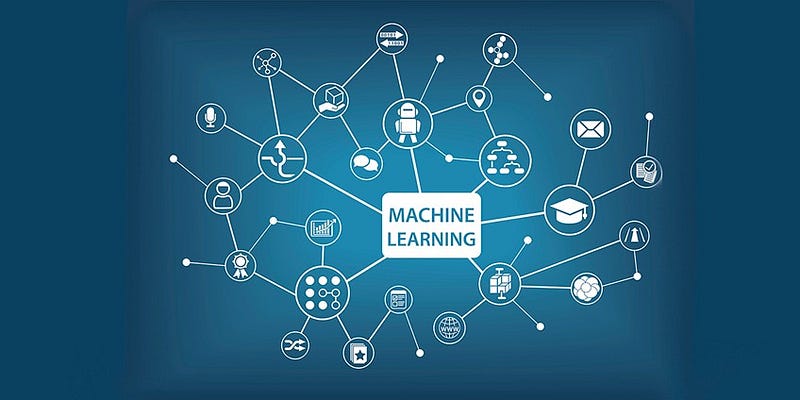
Introduction to Machine Learning Opportunities
Machine learning has become a driving force in today’s digital era, offering unprecedented opportunities for professionals, organizations, and society at large. With applications spanning various industries and domains, machine learning is transforming the way we live, work, and interact with the world. In this comprehensive article, we will explore the benefits of getting into machine learning, from unlocking new career opportunities and enhancing professional growth to solving real-world problems and driving innovation.
Unlocking New Career Opportunities in Machine Learning
As the demand for machine learning expertise continues to grow, there is a wealth of job opportunities for professionals with the right skills and knowledge. Some of the top career paths in machine learning include:
a. Machine Learning Engineer: Develop, implement, and optimize machine learning algorithms and models for various applications.
b. Data Scientist: Analyze, visualize, and interpret complex data sets to uncover insights and inform decision-making.
c. AI Researcher: Conduct cutting-edge research in machine learning, deep learning, and artificial intelligence to advance the state of the art.
d. Machine Learning Consultant: Provide expert guidance to organizations on implementing machine learning solutions and strategies.
e. AI Product Manager: Oversee the development and launch of AI-driven products and services.
Enhancing Professional Growth and Skill Development
Machine learning offers a challenging and intellectually stimulating field for professionals seeking to expand their skillsets and grow in their careers. By getting into machine learning, you can:
a. Stay Current with Technological Trends: Machine learning is a rapidly evolving field, offering continuous opportunities for learning and professional development.
b. Develop In-Demand Skills: Machine learning expertise is highly sought after, and professionals with these skills are well-positioned for career growth and advancement.
c. Foster Creativity and Innovation: Machine learning encourages creative problem-solving and innovative thinking, helping you stay ahead in your career.
d. Improve Decision-Making Abilities: Machine learning techniques can be applied to a wide range of domains, enhancing your ability to make data-driven decisions and solve complex problems.
Solving Real-World Problems with Machine Learning
Machine learning has the potential to address a wide range of real-world problems, from healthcare and finance to climate change and social justice. By getting into machine learning, you can contribute to meaningful solutions and drive positive change. Some examples of real-world applications include:
a. Healthcare: Machine learning algorithms can be used to predict disease outcomes, optimize treatment plans, and personalize patient care.
b. Finance: Machine learning models can help detect fraud, manage risk, and optimize investment strategies.
c. Environment: Machine learning can help monitor and predict environmental changes, such as deforestation, climate change, and natural disasters.
d. Transportation: Machine learning can optimize traffic flow, improve safety, and enable autonomous vehicle technology.
Driving Innovation and Disrupting Industries
Machine learning has the power to disrupt traditional industries and create new markets by enabling innovative products and services. By getting into machine learning, you can be at the forefront of these transformations and contribute to shaping the future. Some examples of industry disruptions include:
a. Retail and E-commerce: Machine learning is revolutionizing customer experience through personalized recommendations, dynamic pricing, and intelligent supply chain management.
b. Manufacturing: Machine learning is enabling Industry 4.0 through predictive maintenance, quality control, and smart automation.
c. Agriculture: Machine learning is improving crop yields and resource efficiency through precision agriculture and advanced analytics.
d. Entertainment: Machine learning is transforming content creation, distribution, and consumption through personalized recommendations, natural language processing, and computer vision.
Navigating the Ethical and Societal Implications of Machine Learning
As machine learning becomes increasingly integrated into our lives, it is crucial to consider the ethical and societal implications of these technologies. By getting into machine learning, you can help shape the responsible development and deployment of AI systems, ensuring that they benefit society as a whole. Some important ethical considerations in machine learning include:
a. Fairness and Bias: Ensuring that machine learning models are trained on diverse and representative data, preventing unfair or discriminatory outcomes.
b. Privacy and Security: Safeguarding sensitive data and ensuring that machine learning applications respect user privacy and comply with data protection regulations.
c. Transparency and Explainability: Developing models that are easy to understand and interpret, fostering trust and accountability in AI systems.
d. Human-AI Collaboration: Designing AI systems that augment human capabilities and promote collaboration, rather than replacing human workers.
Tips for Getting Started in Machine Learning
If you’re excited about the opportunities and benefits of getting into machine learning, consider the following tips to kickstart your journey:
a. Learn the Fundamentals: Begin with foundational concepts in machine learning, such as linear regression, logistic regression, decision trees, and neural networks.
b. Develop Programming Skills: Familiarize yourself with programming languages like Python and R, as well as machine learning libraries like TensorFlow, Keras, and scikit-learn.
c. Engage with the Community: Join online forums, attend meetups, and participate in competitions to connect with other machine learning enthusiasts and professionals.
d. Stay Informed: Follow industry news, research papers, and blogs to stay current with the latest trends and advancements in machine learning.
e. Gain Practical Experience: Work on hands-on projects and real-world problems to develop your skills and build a portfolio that showcases your expertise.
Summary
Getting into machine learning offers a wealth of opportunities for personal and professional growth, as well as the potential to make a meaningful impact on the world. By developing in-demand skills, solving real-world problems, and driving innovation across industries, you can unlock new career paths and contribute to the responsible development of AI technologies. Stay curious, persistent, and engaged with the machine learning community, and you will be well on your way to a rewarding and successful career in this exciting field.